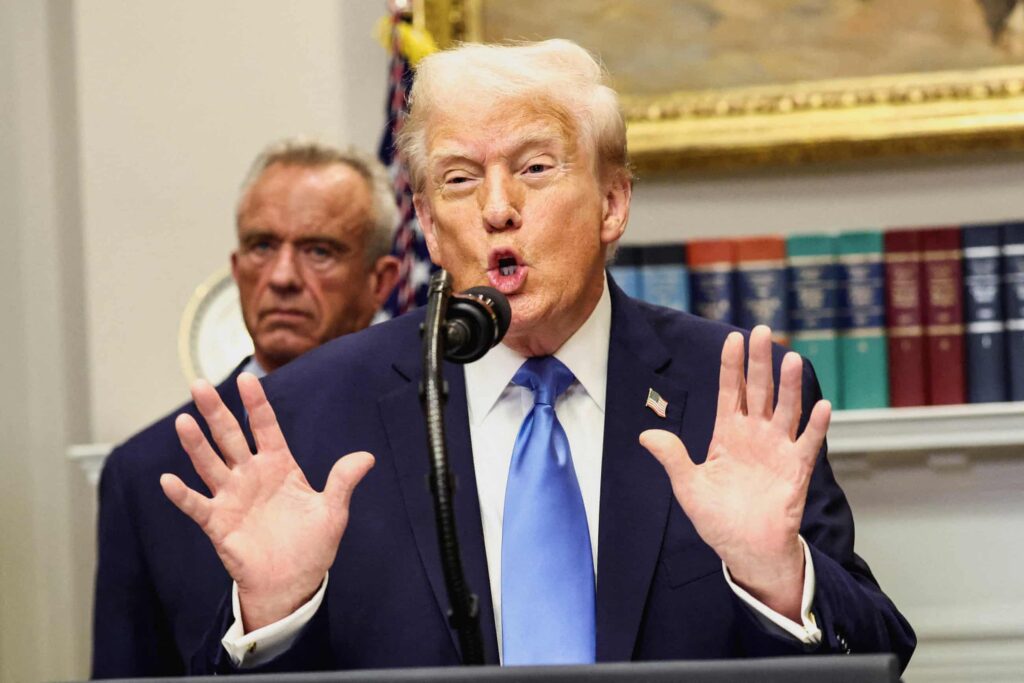
Australia must take significant steps to avert a potential loss of life due to recent funding cuts made by the United States to global health initiatives, according to Dr. Tom Frieden, former director of the US Centers for Disease Control and Prevention (CDC). Frieden, who led the CDC until 2017 under President Barack Obama, expressed that nations closely allied with the US need to reassess their roles in global health following drastic reductions in funding initiated by former President Donald Trump.
The Trump administration implemented a series of executive actions aimed at freezing foreign aid and significantly cutting funding for agencies critical to global health. This included the dissolution of the US Agency for International Development (USAID), a more than 50% reduction in CDC funding, and the withdrawal of the US from the World Health Organization (WHO). As a result, the CDC eliminated approximately 2,400 jobs, though around 700 have since been reinstated. Furthermore, funding for Gavi, a global alliance responsible for procuring vaccines for underprivileged children, has been reduced by over US$1 billion.
Frieden emphasized the vital role of the CDC in global health collaboration, stating, “When those systems are dismantled, there can be life-and-death global consequences.” He warned that the US decision to withdraw funding from Gavi and other health programs could lead to millions of unnecessary deaths, particularly among children, in low and middle-income countries. A recent study published in The Lancet Child & Adolescent Health Journal highlighted that cuts to health aid for tuberculosis and HIV could result in “millions of additional childhood tuberculosis cases and deaths” over the next decade.
Australia’s Response to Global Health Challenges
In light of these developments, a spokesperson for the Australian government’s Department of Health, Disability and Ageing stated that investing in global health is crucial for safeguarding the health and well-being of Australia and its region. The spokesperson noted that Australia is actively participating in the WHO’s restructuring process, focusing on enhancing country-level activities, improving global health data management, and addressing health emergencies.
Moreover, Australia is set to launch its own CDC in January 2024. This initiative aims to provide independent, transparent, and evidence-based public health advice while facilitating collaboration among various government sectors and international partners. The establishment of the Australian CDC will bolster the country’s disease surveillance systems, a move Frieden supports wholeheartedly.
“The foundation of every resilient health system is primary health care; it’s the most cost-effective, efficient, and high-impact way to save lives,” Frieden remarked. He underscored the necessity for robust disease surveillance and rapid data sharing to enhance preparedness against health crises.
Prof. Allen Cheng, director of infectious diseases at Monash Health, who has previously provided guidance on vaccine regulation in Australia, noted that while Australia takes US health policies into account, it possesses the capacity to make independent decisions. Cheng pointed out that concerns about the impact of US funding cuts are more pressing for countries with less resilient health systems, such as Democratic Republic of the Congo during the Ebola outbreak.
“While public health workers locally and from other countries will hopefully respond effectively, it doesn’t help if the CDC isn’t able to assist,” Cheng said. He also highlighted the challenges posed by misinformation emanating from once-trusted US health institutions, which could undermine public confidence in health advisories.
The Importance of Global Health Collaboration
Frieden warned that cuts to staffing and funding for US health agencies could hinder their ability to thoroughly review new drugs, a situation that could affect other nations reliant on US assessments. He noted, “Misinformation can pressure the agency to make decisions based on ideology instead of evidence.” This has already been observed in the FDA’s decisions regarding Covid vaccines for children and pregnant women.
Despite these challenges, Frieden remains optimistic that “evidence, persistence, and truth can overcome even the most entrenched opposition.” He reiterated the importance of global collaboration, underscoring that health is not a zero-sum game; a healthy nation contributes positively to the global community.
With the Australian CDC’s impending establishment and the government’s commitment to global health initiatives, Australia is poised to play a crucial role in addressing the gaps left by US funding cuts, thereby protecting not only its own citizens but also those in vulnerable regions worldwide.






